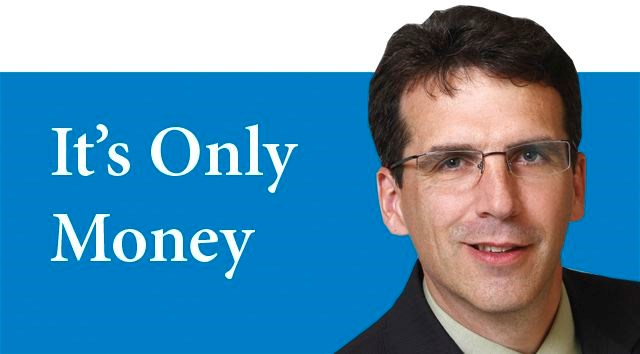Several months ago, a woman sat in my office and told me a gripping true story.
She was an employee of a large corporation who had assets in our region and had, for the most part, been living an idyllic life with her family here. She had risen to a senior management position with her firm, which provided a very handsome income, especially when combined with her husband's pay. She had a nice retirement account building up, a lovely home on the lake, two beautiful children, a sturdy 4x4, boats, snowmobiles - you get the idea. It's why so many of us live in this area.
And right in the middle of this storybook life, her husband was diagnosed with cancer.
Grateful for our universal medical programs, she dove in to the system, taking advantage of every opportunity to get him treatment. The basic treatment was indeed covered, but travel costs, home renovations and numerous other items were not. That's OK. She had the means, and would use them to her advantage. What is money for anyway? She drew from her retirement savings to help fund the extra costs, sold some of their surplus recreational gear, and got a leave of absence from work, all the while hopeful for a recovery.
This went on for nearly a decade, when the love of her life finally succumbed to the disease. By then, fortunately, she still had a great job with a gracious employer, but all her surplus was gone. The kids grew up and moved out, and she found herself alone, rebuilding both emotionally and financially.
Unfortunately this is all too common. In recent decades medical advances have dramatically increased the survival rates of people who have been diagnosed with a critical illness such as cancer, stroke or heart disease. The recovery (or palliative) process is a tough battle and the time away from work has serious financial consequences.
Critical illness insurance provides financial protection by paying out a lump-sum benefit in the event the insured is diagnosed with one of the covered critical illnesses, such as cancer.
Consider the sobering statistic that one in 2.2 men and one in 2.4 women living in Canada will develop cancer during their lifetime. If a breadwinner is diagnosed with a critical illness and does not have coverage, the pain is amplified. In a best case scenario, their employer may provide some type of disability insurance which is only a percentage of current income. (In Canada it is actually illegal to earn the same amount of money on disability as you would with your normal salary, this is the incentive to return to work.) Therefore it is safe to assume this family's income will decrease while the patient is in treatment.
Even if he or she has good disability coverage, cancer treatments (as one example) are very expensive. Intravenous cancer treatments such as chemotherapy are covered in Canada, but oral treatments are not. It is not uncommon for oral drugs to be in the range of $5,000 to $10,000 per month, and can go as high as $33,000 per month.
During the period of illness, there is substantially more pressure on the healthy partner to provide for the family, taking time off work, acting as the sole caregiver to the children - all the while caring for the critically ill. An alternative would be to pay for professional assistance such as a nurse, but everything costs money.
One could dip into savings, (as did my friend) such as your TFSA, RRSP or other retirement savings accounts. But in doing so, not only are you losing out on the amount withdrawn but also forgoing the compound growth they would have received on these tax-sheltered investments. This could result in having to delay retirement in order to recover.
From the foregoing it is clear that a critical illness can wreak financial havoc, on top of a world of health and emotional woes. Insurance provides the peace of mind knowing that the diagnosis of specified illnesses comes with a financial lift to get them through the recovery process. They must make it through the stipulated survival period (usually 31 days) in order to receive the benefit. A few other features include:
Best doctors: This is a service giving the insured access to an international network of physicians that can help you understand your diagnosis and treatment options
Retirement protection: By avoiding having to dip into your savings, your retirement savings account growth will not be hindered due to a critical illness
Optional benefits: The return of premium option is a very common optional benefit that can be added to an insurance policy which allows you to receive 100 per cent of your money back if you do not receive a critical illness
Corporate ownership: The policy can be owned by a corporation which would pay the premiums using income taxed at a lower tax rate than personal rates
Many people insure their cars, homes and other property because it is assumed that these are their most valuable assets. In challenging times, many come to appreciate that the ability to earn an income is their most treasured asset.
Mark Ryan is an insurance representative with RBC Wealth Management Financial Services Inc., and these are Ryan's views, and not those of the firm. This article is for information purposes only. Please consult with a professional advisor before taking any action based on information herein. Ryan can be reached at [email protected].



